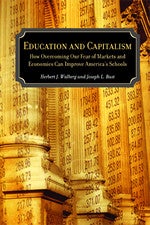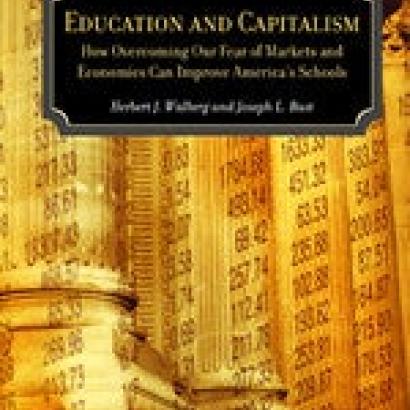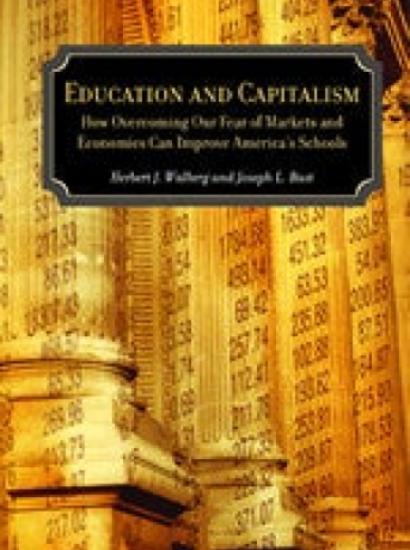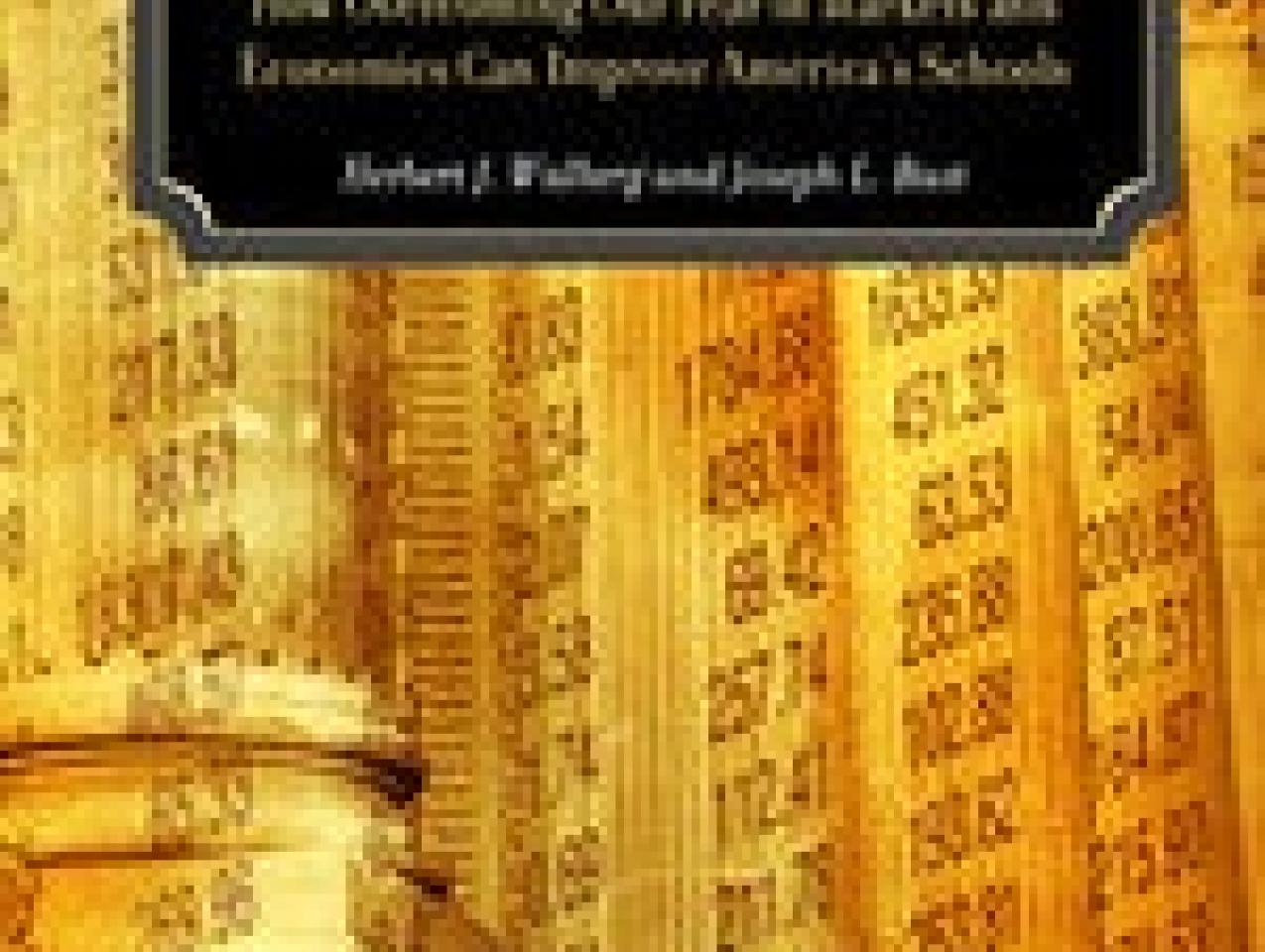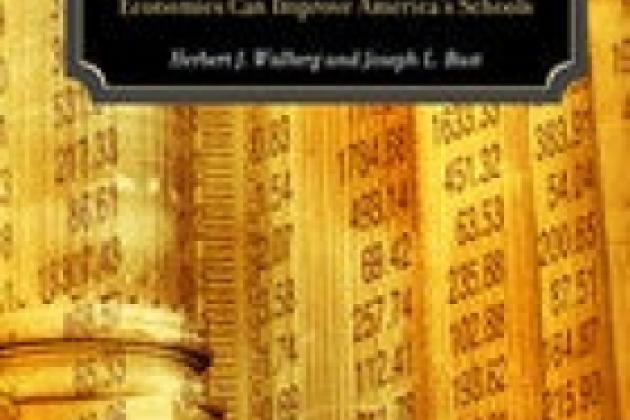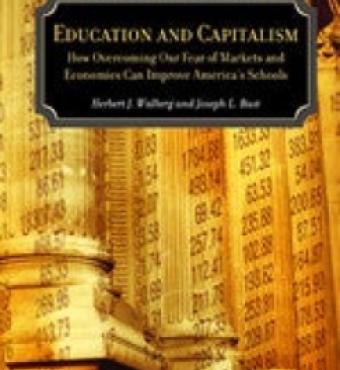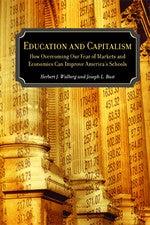Capitalism once did a superior job providing kindergarten-to-twelfth grade (K–12) schooling in the United States, according to Herbert J. Walberg and Joseph L. Bast, who say it would do so once again if schools were "privatized," or moved from the public to the private sector.
But while the legal, sociological, and political cases for school choice have been made over and over, the economic case has become the weak sister of the movement—perhaps because many citizens misunderstand capitalism and cling to old myths about it.
Competition among schools and private rather than public financing were prevalent in the United States until the mid-1800s. How to bring them back to improve schools in the twenty-first century is the focus of Walberg and Bast's new volume Education and Capitalism, now available from Hoover Institution Press.
Many people believe capitalism encourages greed and exacerbates inequality, tends toward monopoly and low-quality products, and allows corporations to manipulate consumers and waste money on advertising. The failure of economists to debunk these myths about capitalism poses a huge challenge for market-based school reform.
In this book, the authors contend that the U.S. public will not embrace market-based reforms—beyond pilot programs for the inner-city poor or charter schools—until they understand what markets are and trust them to provide quality education for their children, just as they provide superior goods and services in nearly all parts of modern economies. They make the convincing case that markets can indeed be trusted to perform that task better than government.
Part 1 of Education and Capitalism summarizes the most recent data on student achievement and school productivity, documenting the need for fundamental reform of the nation's schools and describing the main reasons why schools and past efforts at school reform have failed.
Part 2 explains why capitalism can be trusted to produce safe and effective schools. It explains the institutions of capitalism and addresses the misconceptions about how it operates, putting to rest nine myths about capitalism—such as, for example, that businesses earn obscene profits and that businesses would exploit workers were it not for government intervention. The authors defend the morality of capitalism along with its compatibility with religious and humane beliefs.
Part 3 examines the relationship between education and capitalism, explains why economics is an appropriate tool for studying how schooling is delivered, and presents important economic insights about reform.
Part 4 describes privatization options and choices, with a special emphasis on school vouchers—including specific design guidelines for effective voucher programs.
The book already has been lauded by leaders in education and public policy formation. They include:
"Walberg and Bast have written a scholarly, readable and timely book that cogently explains how market competition can promote school improvement. I recommend it as a college-level text in economics, education or public policy, and to anyone who cares about the education of our children."
JOSEPH P. VITERITTI
Research Professor of Public Policy
Robert F. Wagner Graduate School of Public Service
New York University
"A first rate book on improving America's schools that challenges the popular fallacies, misunderstandings, and romantic notions that many have about capitalism and economics and that makes the case for market-based school reforms."
BRUNO V. MANNO
Senior Associate for Education
The Annie E. Casey Foundation
"Education and Capitalism demonstrates how the well known quality benefits of markets are not somehow suspended in a K–12 environment. A thorough reading of this book will convince all but those with a vested economic or power interest in the status quo."
JOHN WALTON
Cofounder of the Children's Scholarship Fund
"This is a thoughtful, through examination of the virtues of capitalism and free markets as a way to organize elementary and secondary education in a democracy."
MILTON FRIEDMAN
Senior research fellow, Hoover Institution
Nobel Prize winner in economic sciences
Herbert J. Walberg is a distinguished visiting fellow at the Hoover Institution at Stanford University and a member of its Koret K–12 Task Force.
Joseph L. Bast is president of the Heartland Institute, a nonprofit research organization based in Chicago, Illinois.
Education and Capitalism: How Overcoming Our Fear of Markets
and Economics Can Improve America's Schools
by Herbert J. Walberg and Joseph L. Bast
ISBN: 0-8179-3972-5 $15.00, paperback
ca. 416 pages November 2003







